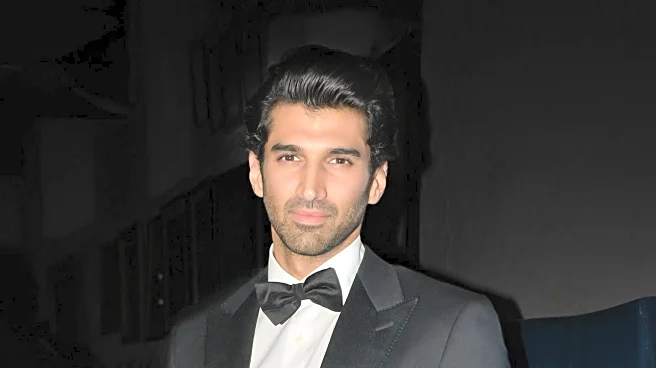What is the story about?
What's Happening?
Israeli television host Maayan Adam has expressed her grief over the death of Roy Shalev, the partner of her late sister Mapal Adam. Shalev, a survivor of the Nova music festival massacre, was found dead in a burning car near Poleg Beach in Netanya. The incident occurred on Friday night, and his death has been ruled a suicide. Shalev had been struggling with the trauma of the massacre, during which he was wounded and lost his partner, Mapal Adam. Prior to his death, Shalev posted a message on social media indicating his inability to continue, which alarmed his friends and family. Despite efforts to locate him, Shalev was found too late. His death has shocked the community, with many friends and acquaintances expressing their sorrow and disbelief.
Why It's Important?
The tragic death of Roy Shalev highlights the severe impact of post-traumatic stress on survivors of violent events. Shalev's struggle underscores the need for mental health support for individuals affected by trauma, particularly those who have experienced loss and violence. The Nova Tribe community, of which Shalev was a part, has called for increased vigilance and compassion towards survivors and bereaved families. This incident serves as a reminder of the ongoing challenges faced by those dealing with the aftermath of traumatic events, and the importance of providing adequate mental health resources and support systems.
What's Next?
In response to Shalev's death, the Nova Tribe community has issued a statement urging people to remain alert and compassionate towards survivors of post-traumatic stress. The organization emphasizes the need for community support and vigilance to prevent further tragedies. This call to action may lead to increased efforts to provide mental health resources and support for those affected by the Nova festival massacre and similar events. The community's plea for attention to mental health issues could influence public policy and societal attitudes towards trauma survivors.
Beyond the Headlines
Shalev's death raises ethical and cultural questions about how society addresses mental health and trauma. It highlights the stigma often associated with mental health struggles and the need for open conversations about these issues. The incident may prompt discussions on the adequacy of current mental health services and the importance of community support in healing from trauma. Additionally, it underscores the cultural impact of violent events on communities and the long-term effects on individuals' mental health.















